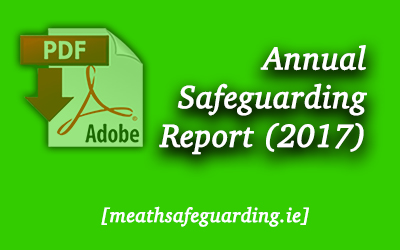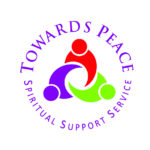Annual Safeguarding Report 2017
Annual Safeguarding Children Report for the Diocese of Meath 2017
Introduction
The Diocese of Meath is required to put in place arrangements to ensure and evaluate its compliance with the seven safeguarding standards and to notify the NBSCCCI in writing of the completion of this annual report.
The parish safeguarding audit returns have bene scrutinised by the Safeguarding Children Committee and recommendations for further action and improvements are incorporated in a report for Bishop Smith. This process applies to Standards 1, 5, and 6.
A report is also prepared for the Bishop by the Designated Liaison Persons (DLP) on Standards 2, 3, and 4. Recommendations for action and improvements identified by the DLP will be incorporated into the Safeguarding Plan 2018-2021.
It has been decided to include reports on the work of the Advisory Case Management Committee (ACMC) and of the Safeguarding Children Committee (SCC) in this annual report.
Section 1
Report of the Safeguarding Children Committee on Standards 1, 5 and 6
The Safeguarding Children Committee has overall responsibility for the implementation of Standards 1, 5 and 6 and aspects of Standard 7. In relation to Standard 1 in particular, this is delegated, in the main, to the diocesan safeguarding trainers and parish safeguarding representatives (PSR) and is reported on through the annual parish self-audit. The returns from the parishes have been scrutinised and a report has been prepared by an independent assessor.
Independent Assessor’s Report
My interim report identified a number of issues arising from the introduction of a new reporting template for the 2017 process, based on reviewing 53 completed forms at the time. I understand that contact was made with a number of these parishes by the Safeguarding Resource Team in order to clarify certain aspect of the completion of the forms, in particular where questions were left unanswered or it appeared that those completing the forms had been unclear as to the requirements.
I have now fully re-evaluated those 53 forms, along with a further 12 submitted for review, leading to a full review by me now of 65 forms. This represents a very high level of compliance with the policy of requiring parishes to complete self-audits on an annual basis.
It is evident that there is a high level of awareness in parish communities across the Diocese of Meath of the requirements for high levels of information, and preventative and assurance measures in relation to child welfare and protection.
Concerted efforts have been made, and sustained, in respect of training and information for those in parish communities working directly with children, both on a professional and volunteer basis. This is particularly noteworthy in the case of those volunteers who make themselves available for the very necessary training, as well as undertaking their core roles. The Resource Team have clearly been active in addressing any training needs arising and it is recommended that they follow up with any parishes where individual needs have been identified through the completion of the self-audit process, both in terms of information, training and continuing to provide a valuable resource to parishes in meeting their obligations.
As a general observation it is evident that the understanding among parishes of the requirements for robust child welfare and protection safeguards extends beyond simply adherence to the stated obligations and encompasses a deeper understanding and congruence with the various indicators of good practice as set out in Standards 1, 5 and 6 of the revised national policy and standards.
For the 2018 audit, it is recommended that the Resource Team continue to work with parishes in respect of their understanding of the requirements of the reporting template on a case by case basis based on this year’s experience, so that the parishes can complete these with assurance and confidence. This can be supported by means of continuing to provide generic information and guidance on the process through, for example, helpful Frequently Asked Questions. The issues raised in my interim report may be helpful to the Resource Team in this context, for example where the questions posed in the audit are open to misinterpretation.
In conclusion, it is quite apparent from my evaluation of the 2017 audit that consistent and focussed attention to child welfare and protection has been taken as a matter of policy by the Diocese and implemented as a matter of practice at parish level. This is evidenced in particular by the commitment to training over many years now which demonstrates that the Diocese of Meath, at individual parish level, has been embedding this key message in its work through all of its agents who work with children.
Section 2
Report on the work of the Safeguarding Children Committee and Safeguarding Trainers
Meetings of the committee were held in 31 January, 20 April, 5 September and 28 November 2017. The Resource Team met at least monthly throughout the course of the year.
The members of the Committee are Bishop Michael Smith (Chair); Fr Paul Crosbie (Secretary); Ms Nuala McLoughlin (DLP); Mr David Gavin (Trainer); Ms Antoinette Shaw (Trainer); Ms Pauline Clarke; Mr Alan Doran; Ms Joan Walshe; Ms Marie Willoughby.
Main areas of work addressed by the Committee and Trainers
Standard 1: Creating and maintaining safe environments
The Diocese of Meath provides an environment for children that is welcoming, nurturing and safe. We provide access to good role models whom children can trust, who respect, protect and enhance their spiritual, physical, emotional, intellectual and social development.
Fulfilling that stated commitment, the Committee continued work on monitoring and ensuring that the new vetting procedures were adhered to. In that regard, the Committee heard from the Authorised Signatory Liaison Person. Over 3,000 vetting disclosures were returned to applicants since e-vetting commenced in July 2016.
There was a steady increase in the number of requests by external groups to access parish properties for child related activities including summer clubs and pre-school care. The Bishop briefed the Committee on efforts by the College of Consultors to develop a standardised legal agreement with external agents using Church property including schools.
Standard 5: Training and support for keeping children safe
The Diocese of Meath ensures that Church personnel are trained and supported in all areas of safeguarding relevant to their role, to develop and maintain the necessary knowledge, attitudes and skills to safeguarding and protect children.
The annual training needs analysis identified all Church personnel who required training and the trainers developed a training plan based on this assessment.
The induction of Church personnel during 2017 included training in the Church’s child safeguarding policy and procedures. All parish clergy and parish safeguarding representatives were invited to the annual deanery information sessions.
Over 200 parish clergy and volunteers attended these sessions where they learned about compliance on the seven safeguarding standards. Copies of Safeguarding Children: Policy and Standards for the Catholic Church in Ireland, a summary leaflet and posters for displays were distributed. Leaflets were also available in both Irish and Polish. We encouraged participants to display these leaflets and to ensure that they are readily available in our parish churches.
The topics covered by the training included:
-
- Completing the new parish audit form
- Garda Vetting for volunteers
- Role of the Designated Liaison Person
- What to do if you receive an allegation or complaint?
- Preparing for Safeguarding Awareness Day.
In addition, specific information sessions were facilitated by the trainers in Tullamore (10 May), Ashbourne (7 October), Mullingar (11 October) and Delvin (27 November). Clergy, parish representatives, sacristans, choir members and parish volunteers were invited to attend these information sessions.
The Diocese is committed to ensuring delivery at local level of basic training programmes that are identified and approved by the NBSCCCI, as outlined in the National Board’s Training Strategy. As a result, the trainers delivered two full-day training sessions to clergy, new parish representatives, foreign clergy, choir directors and “Children of the Eucharist” leaders in Navan (29 April) and Trim (28 October). These training days fulfilled the trainers’ annual registration conditions.
Church personnel who have specific child safeguarding responsibilities had appropriate, role-specific training that is identified and approved by the NBSCCCI, as outlined in the National Board’s Training Strategy. Therefore, the following training was undertaken:
-
- “Training for Trainers” (25 February, 26 February, 11 March, 12 March and 1 April) attended by David Gavin and Antoinette Shaw
- Role specific training for Support People (8 February) attended by Richard Lowry
- Vetting Legislation Briefing with Gardaí (13 September) attended by Linda Duncan and Irene Connaughton
- Self-Audit Training for Safeguarding Committees and Church Authorities (11 October) attended by Joan Walshe
- Risk Management and Creating Management Plans (8 November) attended by Nuala McLoughlin.
Children who access Church-related activities and their parents/guardians are provided with information, advice and support on keeping children safe, and they are involved in child-safeguarding training initiatives wherever possible and appropriate.
Parents attended “Consultation and Feedback” sessions, which gave them the opportunity to be informed on child safeguarding initiatives in the Diocese. The Committee members hosted these sessions in a number of parishes including Castlepollard, Clonmellon, Ballymore, Drumraney, Carnaross, Castletown-Kilpatrick, Kilbeg and Nobber. On each occasion, child friendly leaflets, outlining safety procedures for Altar Servers and choir members, were distributed to parents and all volunteers working with children in parish settings. The Committee thanks the Parish Priests for their hospitality on these occasions.
The Diocese is required to facilitate the provision of an appropriate level of support to all involved in children’s’ activities in relation to their responsibilities to safeguard children. Towards this end, the trainers are always available to respond to emails and phone calls. All clergy and parish safeguarding representatives have access to the personal mobile numbers of the trainers. The trainers received and logged all phone calls received during 2017 and promptly responded to queries and concerns. Minutes of the monthly meetings of Resource Team are kept and stored in a safe environment in the Diocesan Office. In addition, the trainers are constantly updating the data base of email addresses so as to facilitate ready contact with clergy and parish safeguarding representatives.
Standard 6: Communicating the safeguarding message
The Diocese has a communications plan that details how the Church’s child safeguarding message will be communicated. This was updated in 2017, incorporated in the three-year safeguarding plan (2017-2020) and reviewed as provided for in the plan.
The Diocese makes information regarding how to safeguard children available to a range of audiences including parishioners; children and their parents involved in Church activities; Church personnel; statutory agencies. It does this through disseminating child-friendly information leaflets, information leaflets for adults, posters with the safeguarding policy statement and contact details for DLP and Tusla in Church buildings. The website www.meathsafeguarding.ie has details of the safeguarding policy and procedures.
Three newsletters were circulated across the diocese to inform parishioners on matters including training dates, updates on Garda vetting and the three-year safeguarding plan. Other items included information on the parish self-audit, evidence of good practice in parishes and preparations for Safeguarding Awareness Day. The “Consultation and Feedback” sessions have been valuable from a communications perspective.
Posters in Irish and Polish were printed to communicate the Church’s child safeguarding message to people whose first language is not English. There are two Gaeltacht areas in the Diocese and a substantial Polish community. The need for material in other languages and means of communication with people who have specific needs is kept under review.
Links are fostered with various local organisations in order to promote a safe and caring community for children and to share best child safeguarding practice.
Representative members of the Committee met with Charney Weitzman (Children First Information Officer with Tusla) in May as part of the ongoing liaison with the statutory agency. Agenda items included the Garda vetting process, use of parish property by child-care groups, caring for vulnerable adults and updating details for Tusla personnel on Church posters.
Standard 7: Quality Assurance
The Committee agreed its annual report. An independent assessment of parish self-audits was completed (see above). The findings were positive.
The Committee developed a three-year safeguarding plan (See 3.7) which included an outline of resources required for implementing the plan.
A report was provided for Bishop Smith by the DLP on Standards 2, 3 and 4 and recommendations for action and improvements were incorporated into the child safeguarding



